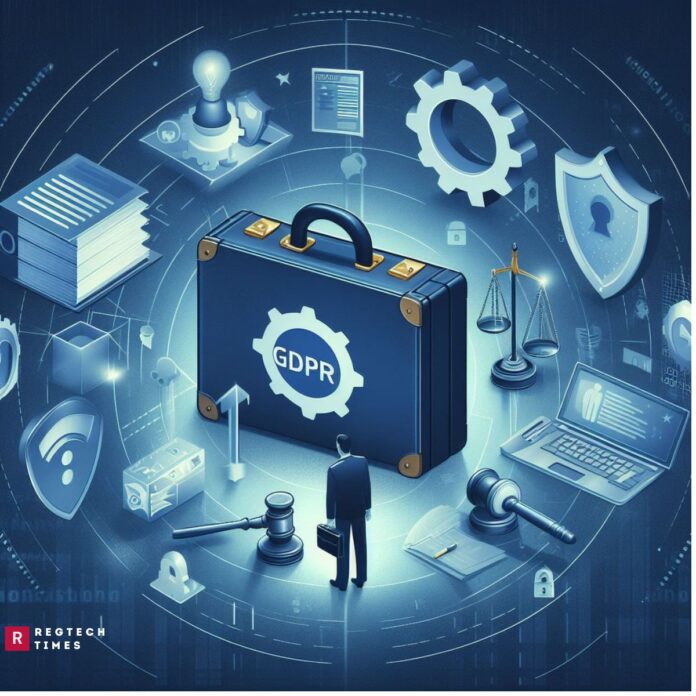The FORIOU Case: A Lesson in GDPR Compliance
The significance of ethical data collecting in the era of digital transformation, when data drives corporate growth and innovation, cannot be emphasized. The consequences of inappropriate data management procedures are shown by the recent case between the French Data Protection Authority (CNIL) and FORIOU, a telemarketing company that promoted loyalty programs.
When CNIL fined FORIOU a whopping EUR 310,000 i.e. 1% of its turnover for violating the General Data Protection Regulation (GDPR), the company found itself in hot water. The root of the problem was that FORIOU had obtained personal information about individuals via data brokers, and that consent forms it had used had been faulty and did not adhere to GDPR Standards.
Ethical Data Collection in the Digital Age
The GDPR requires that personal data be processed in a transparent and legal manner. It was implemented to protect the rights and privacy of EU people. But FORIOU’s error was caused by multiple non-compliances. First off, users were not fully informed about FORIOU’s role as a recipient of personal data in the consent forms used by data brokers. The right of individuals to be informed about data processing operations was violated by this lack of transparency.
Furthermore, the consent method made use of “dark patterns,” deceptive design cues meant to lead users to unintentionally offer assent. Visible permission buttons trumped subtle decline choices, robbing users of their freedom to decide by themselves whether or not to give their data. The fundamental tenet of GDPR, which emphasizes giving individuals control over their personal information, is contradicted by this forceful approach.
CNIL’s Ruling: Setting Precedents for Data Protection Accountability
The CNIL’s determination to impose direct liability on FORIOU highlights the responsibility of businesses in guaranteeing legal data practices, especially in cases when third-party entities assist. This precedent-setting decision emphasizes how companies must ensure GDPR compliance by closely examining the data collection practices used by their suppliers. Maintaining data privacy standards requires proactive management; relying solely on contractual promises is insufficient.
The importance of CNIL’s ruling goes beyond the specific FORIOU case. It acts as a wake-up call, highlighting the critical significance of ethical data handling procedures, for companies involved in data-driven marketing initiatives. Acquiring personal data for marketing purposes requires a careful assessment of providers’ permission methods to guarantee compliance with GDPR regulations.
Moreover, the FORIOU case highlights the wider consequences of GDPR implementation in influencing company conduct about data privacy. The growing dependence of businesses on data for decision-making and customer engagement has placed regulatory agencies in the position of protecting individuals’ rights in the face of rapidly changing technological environments. The proactive approach taken by CNIL makes it very evident that adherence to data protection laws is mandatory and that infractions will result in harsh penalties.
Essentially, firms traversing the complex terrain of data collecting and processing can learn from FORIOU’s mistakes. In addition to being required by law, ethical data practices also have a moral commitment to upholding people’s right to privacy. Through the prioritization of openness, consent, and accountability, enterprises can cultivate consumer trust and reduce the potential consequences of non-compliance. Sustainable business practices are predicated on ethical stewardship, particularly in a time when data is being heralded as the new currency.
It is critical for businesses to have a comprehensive strategy to compliance as they manage the challenges of data collecting and processing. Organizations need to go beyond simply following the law and adopt a culture of privacy by design, incorporating moral considerations into each phase of the data lifecycle. Strong data governance structures, frequent audits, and continual staff training are necessary to establish a shared commitment to data ethics.
The FORIOU instance also emphasizes how crucial consumer trust is in a market that is becoming more and more data driven. Businesses need to put transparency and accountability first in order to build long-lasting connections with their customers, especially now that privacy issues are at the forefront of public discourse. Advocating for privacy as an essential human entitlement allows companies to stand out from the competition and cultivate a reputation for conscientious handling of personal data.
In the end, the FORIOU scandal offers companies a critical opportunity to reevaluate their data policies and reassess how they approach privacy compliance. In a world where privacy scandals and data breaches make headlines, managing data ethically is not only required by law but also essential for long-term success. Businesses can negotiate the changing regulatory landscape and maintain stakeholder trust by adhering to the principles of transparency, consent, and responsibility.


